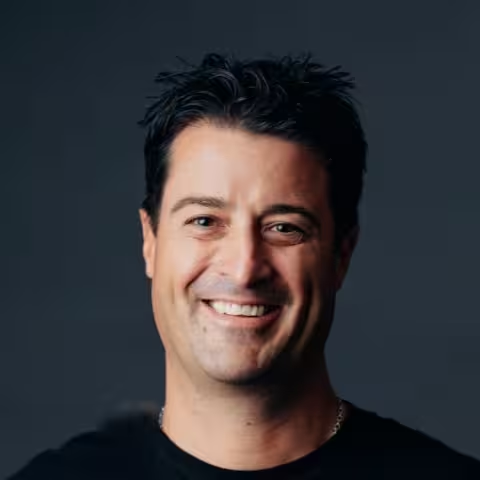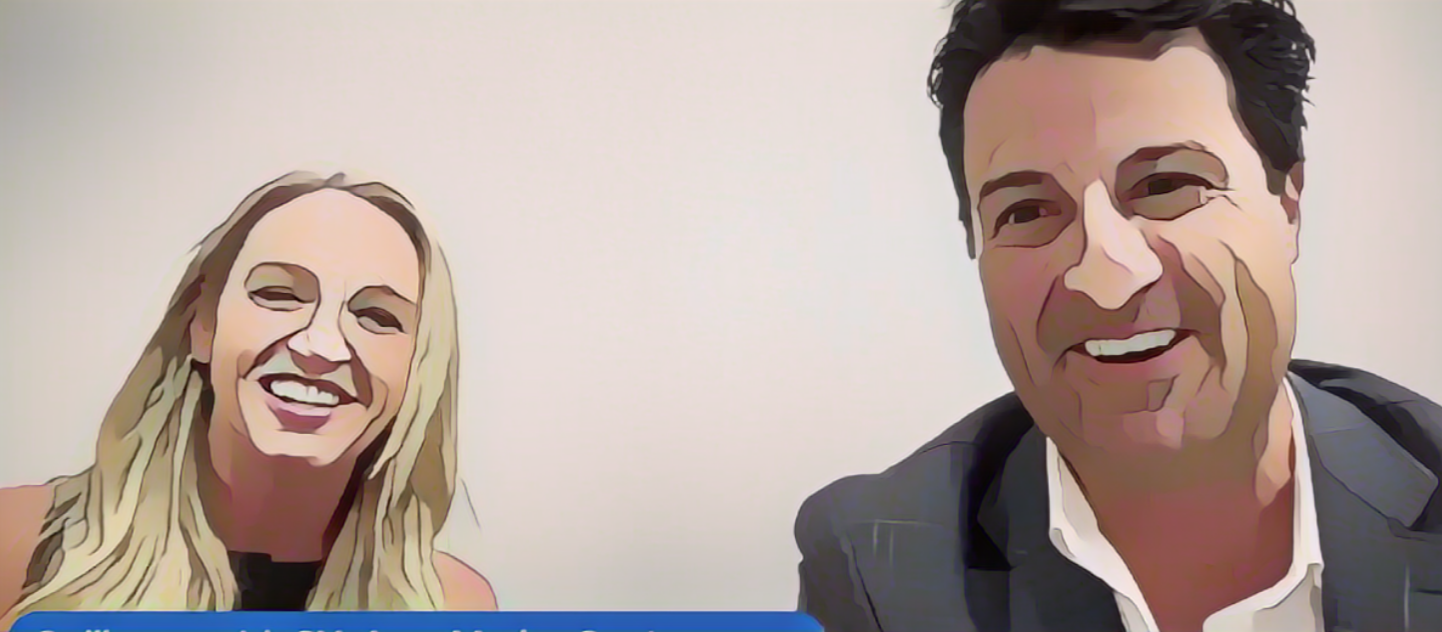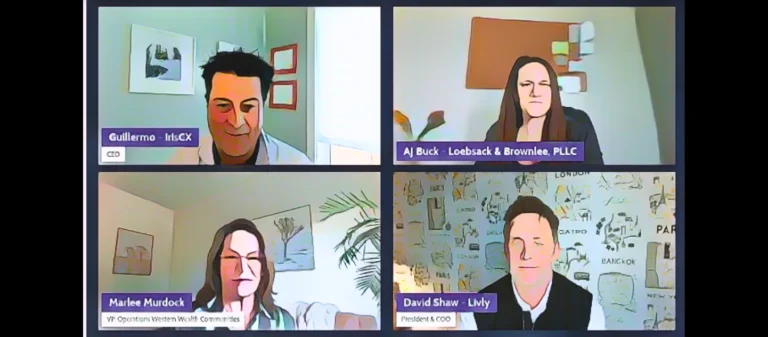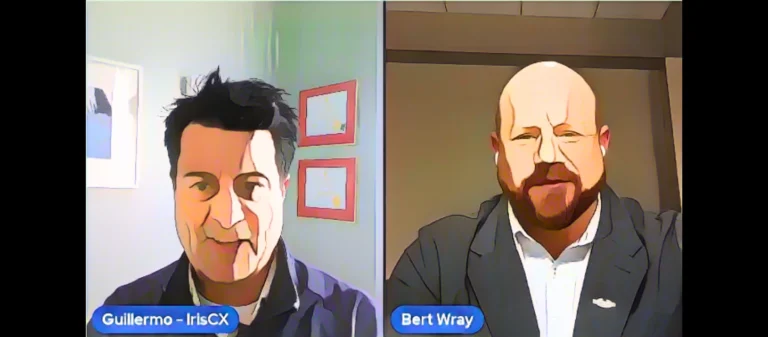“Come as you are, literally come as the person you are.” – Amy Mark
When Amy Mark said that about CenterSpace, I felt an internal pause – the kind that signals someone just gave you permission to be more honest than you’ve been lately. We were deep into a conversation that had nothing to do with polished scripts and everything to do with real-life transition: from burnout to balance, from imposter syndrome to confidence, from one career chapter to something that feels… right.
Amy had just taken on a new role as Regional Director at CenterSpace, stepping away from her RVP position at Embrey. “I was on a plane every week,” she shared, “and it just wasn’t sustainable.” Her voice was raspy from NAA conference conversations, but her message was clear: culture was no longer a luxury, it was the dealbreaker.
And as we talked, I kept reflecting on what her story means for all of us navigating change whether that’s launching new tech, pitching internal ideas or figuring out how to lead through complexity. This wasn’t just a story about finding a new job. It was about finding the kind of environment where you don’t have to perform authenticity. You just live it.
“Satisfied means you’re basic… you want to make it memorable.” – Amy Mark
That quote hit hard. In a world where we celebrate automation and scaling, Amy brought the spotlight back to something quieter and more difficult: the human touch. Not the accidental kind. The intentional kind.
This resonates a lot with what we see on the tech side too. It’s not enough to build great tools, you have to show people how those tools can help them care better. Amy’s lens on performance was beautifully old school in that way. “We’re in people’s homes. We owe them something more than just satisfaction.”
As someone leading an AI company in property maintenance, I find that grounding. We can build intelligence into everything, but if we lose the human signal underneath it, then all we’ve done is increase efficiency at the cost of empathy. Amy reminded me we don’t have to choose between them.
“Start making those relationships early on. Maintain them. Give those people time.” – Amy Mark
Amy didn’t just talk about leadership, she embodied it in her commitment to mentoring others and showing up for her peers. Whether it was walking units with maintenance tech or advocating for regional facilities support, she kept her focus on growing people not just solving problems.
It’s something I’m learning, too. Great teams don’t grow through task lists alone, they grow through trust. The more we invest in each other as humans, the more resilient and adaptable we become as professionals.
Her involvement with associations and storytelling initiatives to elevate industry career paths (especially in maintenance) is a direct investment in that long-term trust. And from the outside, it looks like advocacy. But from the inside? It’s leadership.
“Is it a no, or is it a not right now?” – Amy Mark
One of my favorite moments in our conversation was when Amy talked about getting told “no.” Not as a stop sign, but as a data point.
That framing matters. Whether it was trying to roll out new tools, pilot different survey workflows, or shift policies inside Embrey, Amy’s posture wasn’t defensive. It was curious. She told us, “I’m assertive, I’m direct but I also want to understand why it’s a no.”
That’s a big one for me, personally. When I get passionate about solving a problem (especially one I know can be solved), I sometimes miss the signal that my timing is off. Amy reminded me that innovation needs context. If the timing isn’t right, your yes won’t stick anyway.
“I don’t want to look at my emails in bed anymore.” – Amy Mark
That right there? That might be the most radical thing anyone said at NAA.
Amy’s intentionality whether it’s setting boundaries around her morning routine or advocating for smarter workflows that give time back to site teams is a masterclass in sustainable leadership. I was especially struck by how she described switching to short-term contracts to preserve marketing budget flexibility. Not every innovation is about new tech; sometimes it’s about new thinking.
It made me reflect on how much time I waste firefighting things that could have been solved with clearer expectations upfront. Amy’s blend of EQ and executional discipline challenged me to re-look at my own calendar and ask: is this week designed for progress or just survival?
We wrapped with a question I asked all guests: what advice would you give your younger self?
Amy didn’t hesitate.
“Never be afraid to speak up, just learn your audience. And be fearlessly authentic.”
She even has it tattooed on her wrist. And after spending an hour with her, I can say: she lives it.
Amy’s story reminds us that transformation doesn’t have to be dramatic. Sometimes, it’s just one brave yes at a time. Yes to rest. Yes to culture. Yes to doing it differently this time.
And when you’re ready, that’s when you get to Hell Yes!




